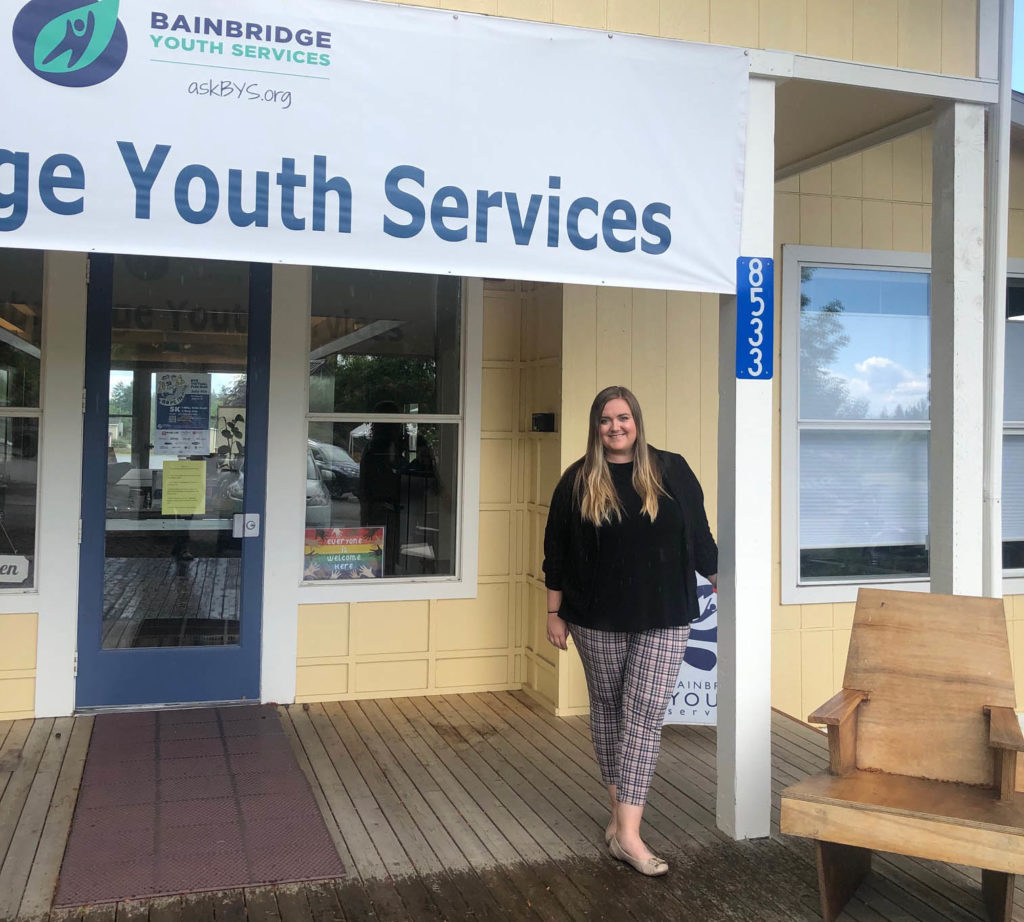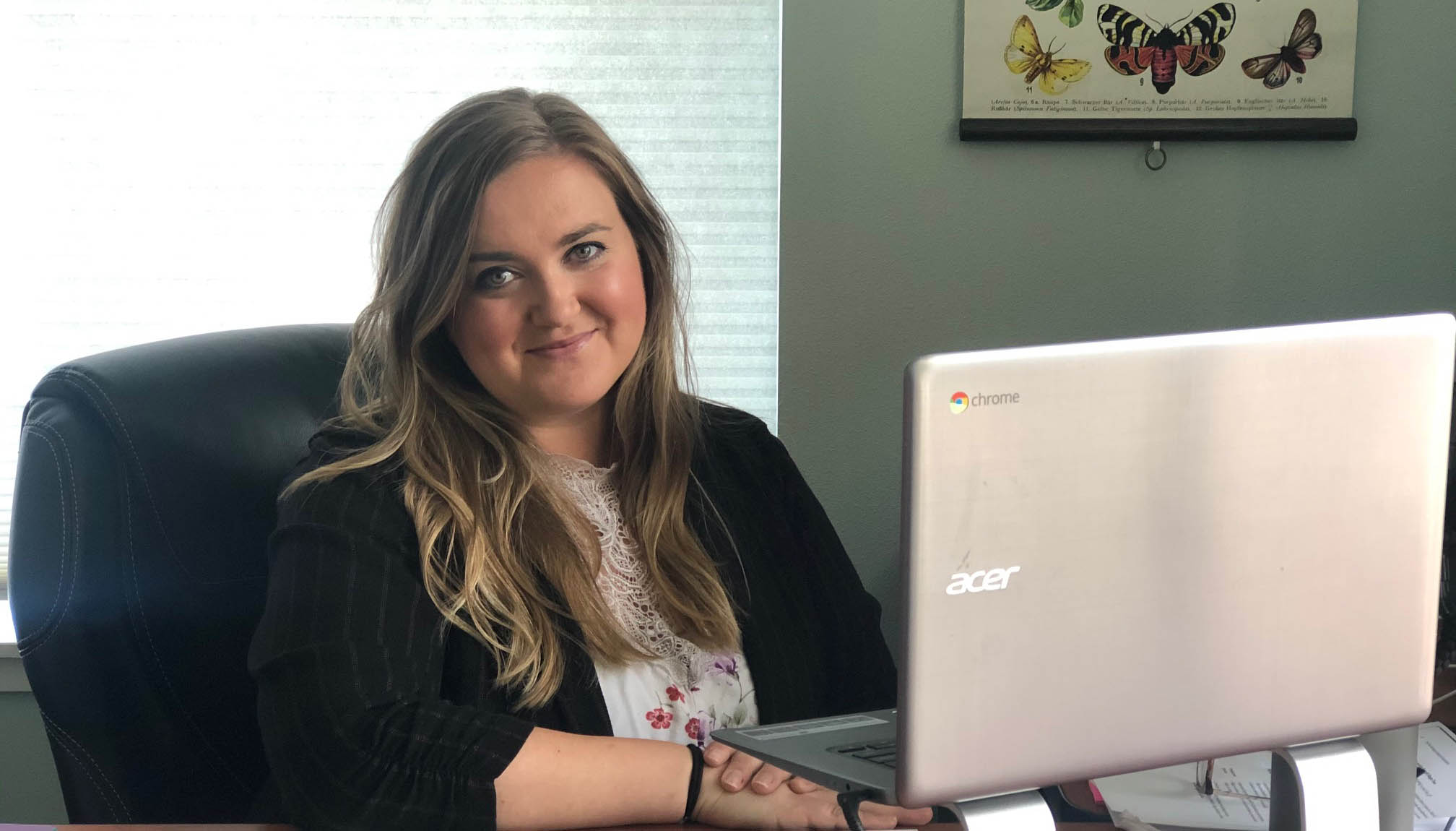In April, Brittany Wisner moved into a new apartment at HRB’s Janet West. It was a long-awaited homecoming for a woman who found her safe space on Bainbridge Island as a child and now provides one to high school students in her role at Bainbridge Youth Services.
As program support coordinator at Bainbridge Youth Services (BYS), a small nonprofit focused on the mental health and wellbeing of teens, Brittany Wisner uses the term “safe space” with care. She appreciates that it has accrued meaning well beyond the sum of these two small words and now refers to places on college campuses where marginalized students might find refuge from discrimination and a place for self-expression. Places that in these fractious times provide much-needed support—and provoke controversy.
But in recalling her life story and her work connecting students at Bainbridge High School with counseling and community, there really is no better term. Bainbridge Island was her “safe space from a traumatic childhood,” and BYS, with its bountiful hot chocolate, bean bag chairs, empathetic peers, and most important, trained and caring professionals, is a safe space for students dealing with tremendous challenge.
The Seattle-born Brittany arrived on Bainbridge at the age of six under difficult circumstances. Her parents, who abused drugs and alcohol, could no longer care for their daughter, and so her grandparents took her into their home, a 5-acre farm off Madison where they raised horses, chickens, and pigs. When Brittany’s “poppa” retired from his job as a longshoreman in Seattle, he started Anne’s Nursery (named for his wife and now defunct), where they sold plants and operated a Christmas tree farm. Brittany, a proud Wilke’s whale, walked to school with a neighborhood friend. It was an island idyll.
After graduating from BHS, where she had been a star softball player, Brittany left for Whitworth University in Spokane, where she majored in marketing and communications and played on the school’s softball team. After some trial and error in the job market, she realized that she needed to do work that she found emotionally fulfilling. At the time, Brittany was also the assistant coach of the varsity girls softball team at BHS. The staff at BYS knew her from this role and so in 2018, when they were looking to fill the position of program support coordinator, they called Brittany.

After college and while coaching and working on the island, there was no family home to return to. Her grandparents had sold the farm and relocated to Wing Point when she was a sophomore. They were eventually priced off the island and today the Wisners live in Hansville. And so, unable to afford the island’s high prices, Brittany found a house in Poulsbo which she shared with a married couple.
In April, Britany moved into an HRB apartment at Janet West. To have a place of her own in the community she serves—the community where she grew up and which will forever be her safe space, with its memories of childhood joy and salvation and its present-day emotional and community connection—has been “a blessing.”
The price of housing on Bainbridge keeps out people like Brittany and so many of the teachers, counselors and other nonprofit workers who, as Brittany puts it, “walk alongside [students] in their adolescent journey.” It also creates the conditions for homelessness. BYS sees homeless students who’ve been asked to leave by their parents over gender identity, alcohol and drug use, or other conflicts and who end up couch surfing, moving from one friend’s house to another. But BYS also sees students who are the children of homeless parents.
“There’s this idea that we’re not Seattle, we’re not Bremerton, we don’t have homeless people here, we don’t have homeless youth here and that is absolutely not true.”
“I don’t know where life will take me,” Brittany says, “but I know that right now I love my job. I love serving this community, and it is really important to me to help shift the world of mental health and help make mental health resources more accessible to youth in particular and to everybody … It’s really important to me as someone who has struggled with mental health and overcome a lot of mental health challenges to be a part of that solution … I love [Bainbridge]. I have no plans to go anywhere anytime soon.”
